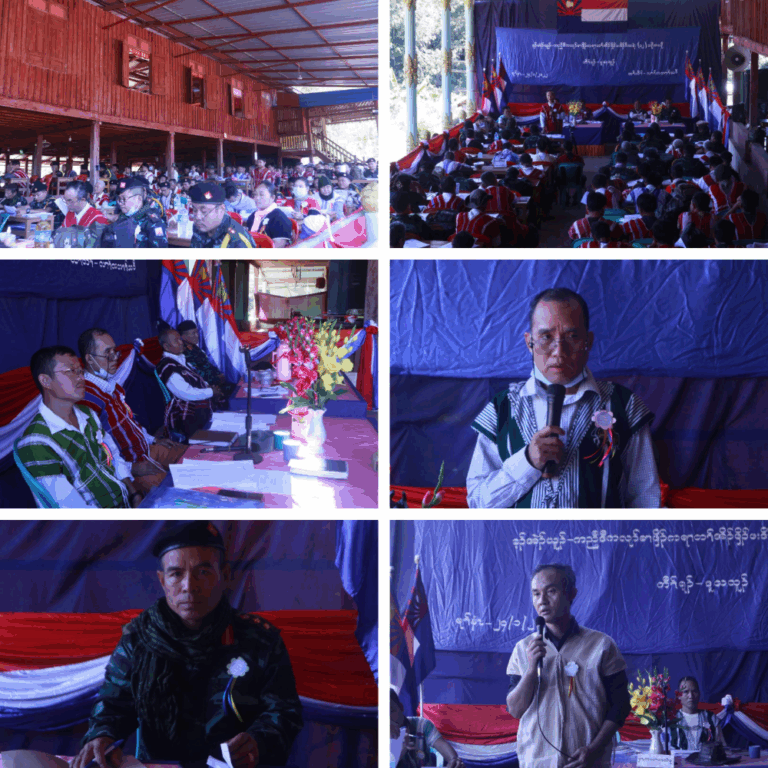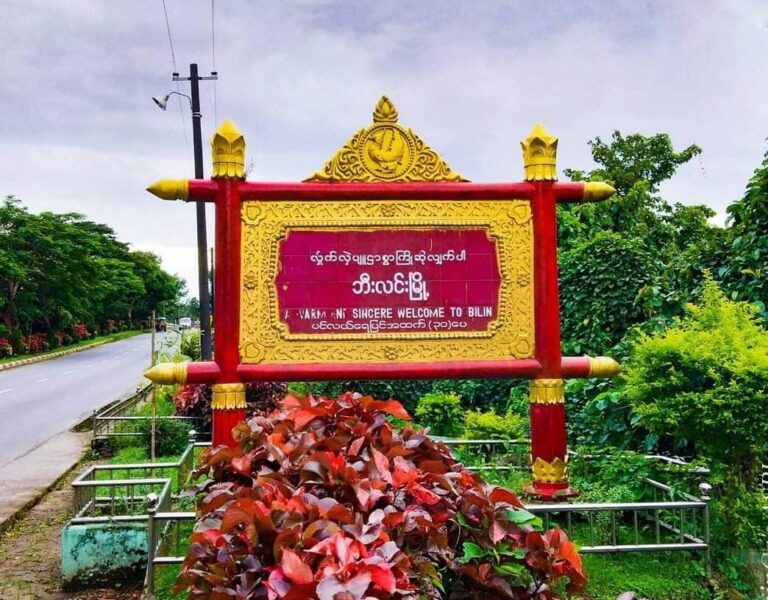 A 180-mile gas pipeline in southern Burma is responsible for human rights violations that are “systemic, shocking and ongoing,” says the Human Rights Foundation of Monland (HURFOM) in a report released this evening. The 100-page report, titled Laid Waste: Human Rights Along the Kanbauk to Myaing Kalay gas pipeline, details abuses along the entire length of an overland pipeline that traverses nearly half the length of Burma’s southern peninsula. [Media release in PDF Format]
A 180-mile gas pipeline in southern Burma is responsible for human rights violations that are “systemic, shocking and ongoing,” says the Human Rights Foundation of Monland (HURFOM) in a report released this evening. The 100-page report, titled Laid Waste: Human Rights Along the Kanbauk to Myaing Kalay gas pipeline, details abuses along the entire length of an overland pipeline that traverses nearly half the length of Burma’s southern peninsula. [Media release in PDF Format]
Laid Waste details abuses committed by Burma’s military government as it has sought to construct, maintain and protect the Kanbauk to Myaing Kalay gas pipeline. The report includes details on the confiscation of more than 15,000 acres of land to make room for the pipeline – and support 30 army battalions tasked with protecting it. The intense militarization of the area, which HURFOM describes as “fundamentally due” to the pipeline, is responsible for abuses that range from rape and summary execution to the daily commandeering of motorcycles and chickens. Security efforts for the pipeline, meanwhile, entail conscription of villagers – some as young as 12 – who must work as unpaid forced laborers, maintaining the pipeline, guarding and carrying equipment for soldiers – at all times under threat of violent retribution for accidents or insurgent attacks.
“The abuses described above are the predictable result of deploying large numbers of soldiers and encouraging them to extract what they can from the countryside, without oversight,” says HURFOM. “But abuses along the pipeline are also a deliberate, calculated part of the pipeline security effort.” Highlighting the ongoing nature of these abuses, in the 5 days that have passed since printing the report, HURFOM has documented the execution of one villager and the burning of 36 homes. In both cases, the army committed the abuses less than a mile from the pipeline.
 This report is released at a critical juncture. Intense competition for access to Burma’s abundant natural resources continues, with China recently agreeing to purchase gas that will be transported 1,200 miles across Burma. Debate on appropriate response to Burma is renewing, as the international community questions the wisdom of strict sanctions and considers potential for increased humanitarian support. In the foreword to Laid Waste, HURFOM’s director Nai Kasauh Mon welcomes the renewed discussion. But he urges caution and calls on the international community not to lose sight of experiences like those documented in Laid Waste. “Discussion is healthy and appreciated,” says Nai Kasauh Mon. “But there should be no question: projects like the Kanbauk to Myaing Kalay gas pipeline do not benefit the people of our country.”
This report is released at a critical juncture. Intense competition for access to Burma’s abundant natural resources continues, with China recently agreeing to purchase gas that will be transported 1,200 miles across Burma. Debate on appropriate response to Burma is renewing, as the international community questions the wisdom of strict sanctions and considers potential for increased humanitarian support. In the foreword to Laid Waste, HURFOM’s director Nai Kasauh Mon welcomes the renewed discussion. But he urges caution and calls on the international community not to lose sight of experiences like those documented in Laid Waste. “Discussion is healthy and appreciated,” says Nai Kasauh Mon. “But there should be no question: projects like the Kanbauk to Myaing Kalay gas pipeline do not benefit the people of our country.”
Further details:
Full PDF copies of Laid Waste can be downloaded at: <http://rehmonnya.org/archives/752>. Information on the 36 burned homes and summary execution mentioned in paragraph 3 can also be found on www.rehmonnya.org.
Hard copies of Laid Waste, as well as print-quality photos for news publication can be obtained by emailing monhumanrights@gmail.com.
Questions or requests for interviews in English, Mon and Burmese should be made by emailing hurfomcontact@yahoo.com or calling +66 (0)81 365 9140.
About HURFOM:
The Human Rights Foundation of Monland (HURFOM) is a Thailand-based non-governmental human rights organization founded in 1995 by a group of Mon youth, students and community leaders. HURFOM works to monitor the human rights situation in southern Burma, and publishes print and online news, lengthy reports and analysis of ongoing human rights violations. More information can be found at www.rehmonnya.org.
Download full report [PDF, 17.4 MB]
Download report in five parts [PDF]
Part I [2.9 MB] | Part II [3.14 MB] | Part III [3.37 MB] | Part IV [5.15 MB] | Part V [2.96 MB]



